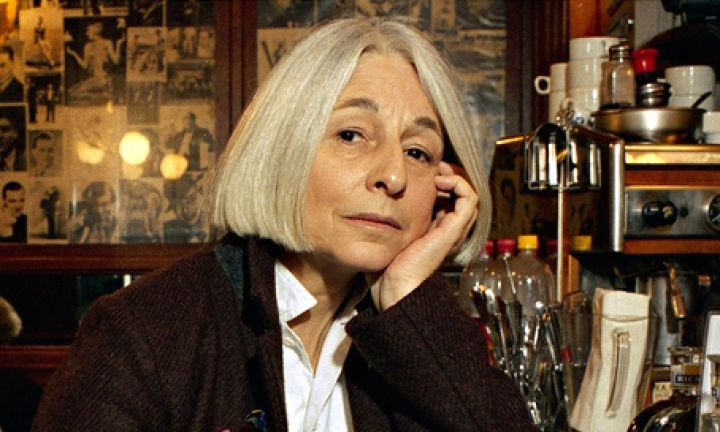
Photo by Suki Dhanda
We’ve been following writer Jenny Diski for many years at the London Review of Books, and more recently on her WordPress.com blog. Just this past weekend Diski was featured in a profile by Giles Harvey for the New York Times Magazine, about a subject she revealed in her own 2014 essays: she has inoperable lung cancer.
Her diagnosis began with a Breaking Bad joke (“So — we’d better get cooking the meth,” she said to her husband at the doctor’s office), and she rejects clichés, refusing to characterize her cancer as a “battle” or let others call her “brave”:
One thing I state as soon as we’re out of the door: ‘Under no circumstances is anyone to say that I lost a battle with cancer. Or that I bore it bravely. I am not fighting, losing, winning or bearing.’ I will not personify the cancer cells inside me in any form. I reject all metaphors of attack or enmity in the midst, and will have nothing whatever to do with any notion of desert, punishment, fairness or unfairness, or any kind of moral causality. But I sense that I can’t avoid the cancer clichés simply by rejecting them. …
I try but I can’t think of a single aspect of having cancer, start to finish, that isn’t an act in a pantomime in which my participation is guaranteed however I believe I choose to play each scene. I have been given this role. (There, see? Instant victim.) I have no choice but to perform and to be embarrassed to death.
She has made peace with writing about cancer (“I could either shut up, that’s the end, get on with dying. Or, get gripped, which is what happened”), and in the past year she’s also written about her time living with Doris Lessing, and on subjects such as love and beauty (“Depp and Desire,” translated from her column in the Swedish newspaper Goteborgs-Posten) and about meeting her husband, whom she calls “The Poet”:
When I was fifty I met The Poet, who is the same age as me. We had each left it until the last minute to find the relationship of our lives. Before that neither of us thought of ourselves as finally committed to a relationship, although we had had marriages and children. Our living happily ever after together, at such a late stage in our lives, is something we both smile at as improbable. It still surprises us, but it works. I don’t really know why. I came across something new, when we met, that both took in and transformed the youthful desire; we had the attraction but built a relationship on top of it that made the already but not quite diminished possibility at my age of looking at someone else in a room, wanting them, seeing it mirrored, and doing something about it, a voluntary surrender thereafter on my part.
For more on Diski, follow her blog, and pick up her books: What I Don’t Know About Animals, Skating to Antarctica, and more.
Posts from Diski’s blog:
“Fish, there Are Fish!”
A humorous sidebar to one of her LRB essays.
“How’s It Going?”
A window into Diski’s life, thoughts and emotions, in between the more formal essays.

